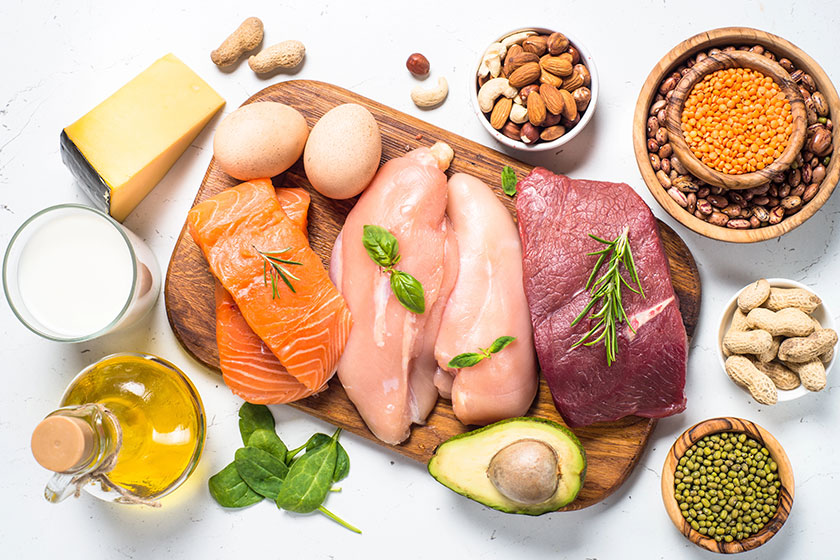Maintaining strong bones in seniors is fundamental to overall health and well-being. As people age, bone density naturally declines, making them more susceptible to fractures and conditions like osteoporosis.
This does not, however, mean that strong bones are out of reach. A diet rich in key nutrients can promote bone strength and health, supporting mobility and independence for years.
A balanced diet plays a key role in bone health. The right foods and an active lifestyle can help maintain bone mass and reduce the risk of fractures. Here is a closer look at the foods and nutrients contributing to stronger bones and how they can be incorporated into daily meals.
Key Nutrients for Strong Bones
When thinking about bone health, two nutrients should be at the top of the list: calcium and vitamin D. These work together to support the body’s bone structure, enhance bone density, and prevent fractures.
Calcium
This mineral is the building block of bones. Without enough calcium, the body cannot maintain bone strength. Residents should aim for around 1,200 mg of calcium daily to keep bones strong and prevent brittle bones.
Vitamin D
Vitamin D aids in the absorption of calcium. Without it, the body cannot properly utilize calcium, weakening bones. Sunlight exposure is an excellent way to boost vitamin D levels. It can also be found in certain foods.
Foods that Support Strong Bones
Incorporating the right foods into your diet can go a long way in building and maintaining strong bones. The following foods are packed with the nutrients needed to support bone health.
Dairy Products
Dairy is a rich source of calcium. Opting for low-fat or fat-free versions like milk, yogurt, and cheese can help avoid excess calories while still delivering a powerful dose of calcium. For instance, a serving of yogurt typically provides about 400 mg of calcium. This is an excellent way to kickstart the day or enjoy a healthy snack.
Fatty Fish
Fish like salmon, sardines, and mackerel offer a dose of calcium. It also comes packed with vitamin D. A 3-ounce portion of wild-caught salmon can meet over 100% of the daily recommended value for vitamin D. Eating fatty fish regularly can help maintain healthy bones.
Leafy Greens
Vegetables such as kale, spinach, and collard greens are great sources of calcium, and they also contain vitamin K, which is important for bone metabolism. For example, one cup of cooked turnip greens can deliver 200 mg of calcium. Adding leafy greens to meals a few times a week can positively impact bone density.
Fortified Foods
Many foods are now fortified with calcium and vitamin D, making it easier to get these nutrients. Plant-based milks, such as almond, soy, and oat milk, often have added calcium and vitamin D. Many breakfast cereals are fortified with these bone-boosting nutrients.
Nuts and Seeds
Almonds, in particular, are a great source of calcium. A half-cup serving of almonds can provide nearly 200 mg of calcium. Additionally, nuts are rich in healthy fats that support overall well-being, making them a perfect addition to a bone-healthy diet.
Beans
Beans, including white beans, black beans, and chickpeas, are an excellent source of calcium and protein. For example, one cup of white beans offers about 190 mg of calcium, making them a powerful ally in maintaining strong bones.
Fruits
Figs and dried prunes are rich in calcium and have been shown to help improve bone density. Five fresh figs can provide around 90 mg of calcium while serving prunes can help prevent bone loss. These fruits can be a delicious and nutritious addition to a balanced diet.
Lifestyle Choices that Support Bone Health
While a healthy diet is vital to maintaining strong bones, lifestyle factors also play a significant role. Engaging in activities that promote bone health can make a big difference.
Weight-Bearing Exercise
Walking, dancing, and weight training promote bone density. These exercises force the bones to carry weight, which can stimulate bone-building cells and help maintain bone mass.
Sunlight Exposure
Vitamin D is often called the “sunshine vitamin” because the body produces it when exposed to sunlight. Residents should aim to spend about 10-15 minutes in direct sunlight a few times a week to boost their vitamin D levels naturally.
Regular Health Check-Ups
Regular visits to a healthcare provider can help monitor calcium and vitamin D levels. Blood tests can reveal any deficiencies, allowing residents to adjust their diet or supplements as needed.
Nourishing Body and Spirit for a Vibrant Life
By focusing on nutrient-rich foods, staying active, and fostering a supportive environment, you and your loved ones can enjoy greater mobility, fewer injuries, and a more vibrant, independent lifestyle.
In our Assisted Living community, we help make this a reality with a holistic approach to health that supports both body and spirit. Contact us to find out more about our wellness and in-house dining programs.







